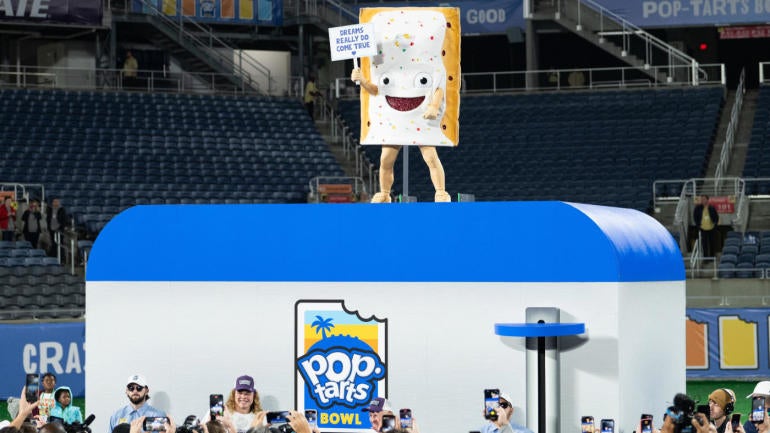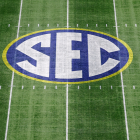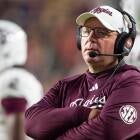
You know we are getting close to the start of the college football season when CBS Sports' Jerry Palm releases his first bowl projection. The rundown predicts the participants for all 41 FBS postseason games from the Camellia Bowl to the 12-team College Football Playoff.
When running down the list, many fans may be asking themselves, "why should I care about the non-playoff bowl games?"
Even before the College Football Playoff expanded, there was plenty of hand-wringing when it came to college football's bowl season. Some fans questioned whether bowls matter, thanks in large part to player opt-outs and the fact that a majority of the games have no bearing on national relevance or championship standing.
Now, with the New Year's Six bowls wrapped up in the 12-team CFP, many are wondering if traditional bowls have finally lost what remained of their luster.
But no matter what anyone says, or what modern trends may suggest, bowls haven't lost their spirit. There's an argument to be made that they aren't as meaningful, but to those with a championship-or-bust mindset, they never have been -- and that's never been what bowls are about.
Bowl games are a celebration of college football. It's extra, free football for fans to enjoy before the doldrums of spring and summer set in. Who cares what meaning may or may not be proscribed?
There's still plenty of magic during bowl season. There always has been, and there always will be. Though there's no justification required for watching a football game, here are a few reasons you can still enjoy bowl games, whether they "matter" or not.
The traditions are getting weirder, and that's wonderful
Bowl traditions aren't a new concept. From parades to trophy presentations, the postseason has always been filled to the brim with showmanship and pageantry.
But some of those traditions are starting to veer into bizarro world. Please do not read that as a negative. After all, college football is a bizarre sport.
Few things capture the chaotic essence of college football better than watching a winning coach get a giant bucket of mayonnaise dumped on their head. Ever since the Duke's Mayo Bowl debuted the mayo bath in 2021, bowls have tried to one-up each other on the weirdness scale.
It's an arms race well worth watching. Here are a few of the newer traditions that have left us equal parts awestruck and confused:
- Pop-Tarts Bowl: The winning team gets the honor of devouring a gigantic, edible Pop-Tarts mascot. A human dressed like a Pop-Tart is lowered into a larger-than-life toaster and a pastry big enough to feed an entire football team pops out of the bottom. Last year's flavor was strawberry. May it rest in peace, knowing its life's purpose was fulfilled.
- Citrus Bowl: Now sponsored by Cheez-It, the winning football coach is doused in a bath of the titular cheddar-flavored crackers. Not to be outdone, the Citrus Bowl has its own life-sized (non-edible) mascot named Ched-Z, who emerged from a gargantuan Cheez-It box before last year's game kicked off. He was also a menace on the sideline and during the postgame celebration.
- Famous Idaho Potato Bowl: Come on. It's a bowl game sponsored by potatoes. In Idaho. Also, the winning coach gets a bucket of french fries poured over their head. Sign me up.
Bowl sponsors themselves can be quite esoteric. 68 Ventures? Famous Toastery? Wasabi (the company, not the plant)? Never heard of 'em, but I'm their biggest fan for a few hours on a random December day.
The 2024 bowl slate promises to bring some fresh new spectacles. Snoop Dogg is sponsoring the Arizona Bowl, after all. Nothing more needs to be said.
Preserving dream matchups
The realities of conference realignment and an expanded College Football Playoff that provides more opportunity, but puts more onus on winning regular season games. That means teams aren't going to be as keen about stacking their non-conference schedules with other Power Four teams. Some coaches and administrators have said as much.
After all, why play Notre Dame when you already have to play nine conference games, a handful of which could be against top-10 teams? Now, prolific non-conference games aren't going to completely die, especially those early-season neutral site clashes with big money involved. But there is a chance that a lot of them will be reserved for the bowl selection process, which can serve as a sort of conservation capsule for those cherished dream matchups. The 2023 schedule gave us non-CFP games like Florida State-Georgia, Penn State-Ole Miss and Arizona-Oklahoma.
If Palm's 2024 projections come to fruition, matchups could include Iowa State vs. Oklahoma in the Texas Bowl (long live the old Big 12), LSU vs. Nebraska in the Music City Bowl and Kansas vs. USC in the Alamo Bowl. Opt-outs or no, it's hard not to get excited about that.
Optimism for the future
Though opt-outs are entirely understandable, they do suck a lot of prestige out of bowl games. There is a positive side to it, though.
Bowl season may not be a college football showcase of the immortals anymore, but it can give hope for the future. After all, players still need to fill in once those ahead of them opt out.
Tennessee's most recent season is a great example. The Vols went 8-4 under starting quarterback Joe Milton, who decided not to play in the Citrus Bowl to prepare for the NFL Draft. That allowed five-star freshman phenom Nico Iamaleava to get his first career start against a staunch Iowa defense.
He led Tennessee to a 35-0 triumph and earned MVP honors in the process, ratcheting the hype about his future -- and Tennessee's 2024 outlook -- up to 11.
It still means a lot to a lot of schools
Look past those bowls that get the cushy, primetime television slots around New Year's Day and you'll find games that still mean a lot to a lot of teams. Even with the expanded playoff that guarantees one spot for a Group of Five champion, postseason opportunities are a rare commodity for non-autonomy teams.
The Myrtle Beach Bowls and Bahamas Bowls of this world allow Group of Five teams to play on a national stage that they aren't traditionally afforded. And these teams tend to be fully stocked, or at least as close as one can get in the modern era.
It's an even bigger opportunity to a Group of Five school if its gets to face off against a power conference program. There's no denying that Tulane's win against USC in the 2022 Cotton Bowl propelled the Green Wave to new heights and made it the talk of college football for an entire news cycle.
![[object Object] Logo](https://sportshub.cbsistatic.com/i/2020/04/22/e9ceb731-8b3f-4c60-98fe-090ab66a2997/screen-shot-2020-04-22-at-11-04-56-am.png)

















